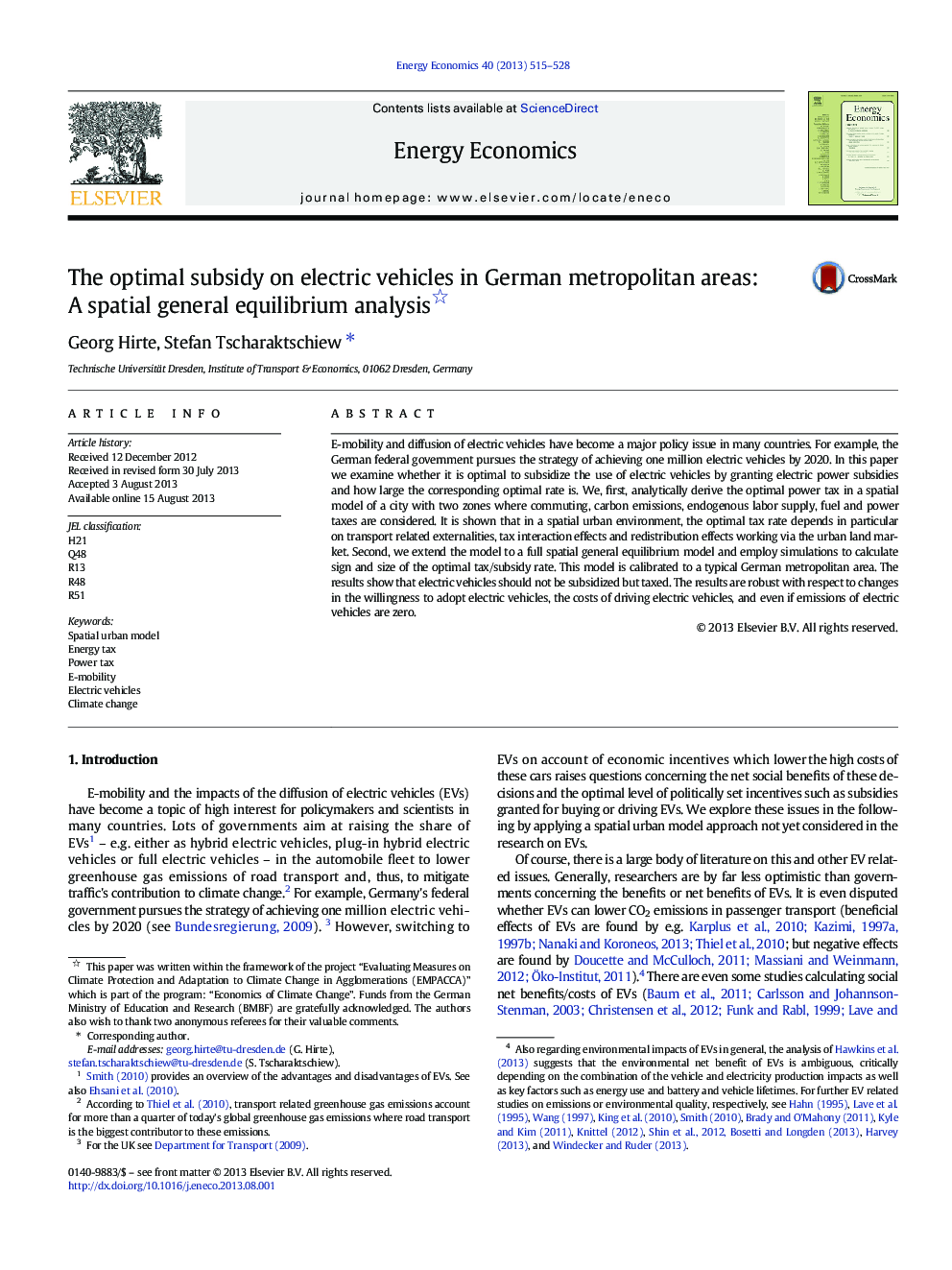| کد مقاله | کد نشریه | سال انتشار | مقاله انگلیسی | نسخه تمام متن |
|---|---|---|---|---|
| 5064783 | 1476723 | 2013 | 14 صفحه PDF | دانلود رایگان |
- We examine whether it is optimal to subsidize the use of electric vehicles (EVs).
- We analytically derive the optimal electric power tax in a spatial urban model.
- Then we extend the model to a full spatial computable general equilibrium model.
- The model is calibrated to a typical German metropolitan area.
- The numerical results show that EVs should not be subsidized but taxed.
E-mobility and diffusion of electric vehicles have become a major policy issue in many countries. For example, the German federal government pursues the strategy of achieving one million electric vehicles by 2020. In this paper we examine whether it is optimal to subsidize the use of electric vehicles by granting electric power subsidies and how large the corresponding optimal rate is. We, first, analytically derive the optimal power tax in a spatial model of a city with two zones where commuting, carbon emissions, endogenous labor supply, fuel and power taxes are considered. It is shown that in a spatial urban environment, the optimal tax rate depends in particular on transport related externalities, tax interaction effects and redistribution effects working via the urban land market. Second, we extend the model to a full spatial general equilibrium model and employ simulations to calculate sign and size of the optimal tax/subsidy rate. This model is calibrated to a typical German metropolitan area. The results show that electric vehicles should not be subsidized but taxed. The results are robust with respect to changes in the willingness to adopt electric vehicles, the costs of driving electric vehicles, and even if emissions of electric vehicles are zero.
Journal: Energy Economics - Volume 40, November 2013, Pages 515-528
